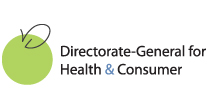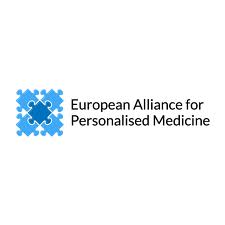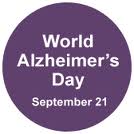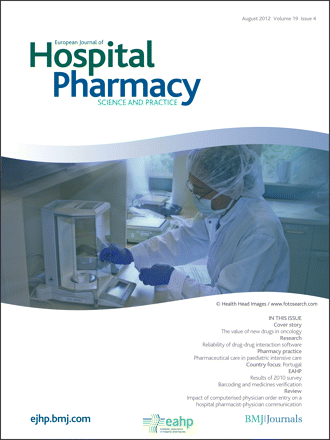EAHP EU Monitor 21 September 2012
The EAHP EU Monitor is a weekly round up of news relevant to hospital pharmacy in Europe.
You can subscribe to receive the EAHP EU Monitor by email here.
|
|
World Alzheimer’s Day: EAHP President highlights the need for dementia-friendly health systems
Speaking on World Alzheimer’s Day (21 September), Dr. Roberto Frontini, President of the European Association of Hospital Pharmacists, called for European health systems to be made fit for purpose for the predicted rise in the numbers of patients with dementia in the next 15 years. He said: “With the number of people living with dementia worldwide expected to double by 2030 it is important that health policy makers and system designers in Europe give thought now to how we best meet the challenges ahead and take the right actions early. “In the hospital setting this includes the education and training of professionals in understanding the impacts dementia may have in patient care. For example, we know that particular challenges can emerge with dementia relating to medication adherence - yet good adherence is essential for attempting to slow disease progression. It is important professionals are aware of this and of the methods available for improving compliance. More broadly, the enhanced care required for dementia patients in hospitals highlights the need to ensure adequate staffing levels. This must be taken into account in national Government decisions about health funding as well as discussions about European health workforce planning. “The dementia challenge also poses the question of how best to achieve true multidisciplinary care. We know of problems that exist with over-prescription of anti-psychotics and that dementia medicines can create polypharmacy difficulties for elderly patients. As the hospital’s resident expert in medication there is a key role here for the hospital pharmacist in improving medicines reconciliation. This role needs to be further realised across Europe and the planning for that should be accelerated across countries. “Consideration also needs to be given to how we can best stimulate new research in the field of dementia medicine. Improvements proposed by the European Commission to the Clinical Trials Directive will go some way to assisting this, but there is still much more to be done. In that sense, the development of Horizon 2020, the European Union's future framework programme for Research and Development, will be important. The cost-benefits to health systems from making advances in dementia medical research are almost self-evident. “Finally, I commend the European Commission, Parliament and Council for the attention they have given this matter in recent years, and I hope there will be no lost momentum at the pan-European level. EAHP will continue to play its part by contributing the hospital pharmacy perspective to the discussion, identifying solutions as much as possible, and, through our educational activities, seek to ensure best practice approaches in Europe are shared across countries.” Press Release here. |
 |
Commission opens consultation on paediatric medicines regulation
The European Commission has this week launched a public consultation on the experience and lessons learned from 5 years of the “Paediatric Regulation” which sought to improve the environment for developing authorised medicines for children.
The Paediatric Regulation came into force in the European Union (EU) on 26 January 2007. Its objective was to improve the health of children in Europe by: The key measures included in the Regulation are: The Commission is now preparing a 5 year report on the operation of the Regulation and therefore seeks feedback from stakeholders on its impact.
Questions that hospital pharmacists may wish to consider include: The Commission are also specifically seeking the views of health professionals on how they might become more engaged in paediatric clinical research, or whether this issue is something better resolved at a national level. Responses should be submitted by 28 November at the latest. Consultation information here: http://ec.europa.eu/health/human-use/paediatric-medicines/developments/index_en.htm |
 |
Manifesto for Personalised Medicine launched in European Parliament
European policy makers were this week presented with a manifesto of actions required to advance the personalised medicine agenda. On Tuesday 18 September a new consortium of interested organisations, called the European Alliance for Personalised Medicines (EAPM), held an event in the European Parliament in order to highlight the steps the Alliance believe are necessary to create the conditions for the growth of personalised medicines. In summary, these are:
• Adapting the authorisation procedures for medicines to take account of the innovative clinical trial designs that personalised medicine will depend on. John Bowes, former MEP and Chair of the EAPM explained to the audience of stakeholders and John Dalli, EU Health Commissioner, that “The future of healthcare lies in a more personalised approach with a focus not only on a person’s biological make-up but also on environmental and lifestyle factors. Personalised medicine offers a chance for dramatically improved treatments and reduces the likelihood of adverse events for patients. However like any innovation it brings challenges to current systems and attitudes, and today we have sought to identify the priorities for policy makers in Europe to meet these challenges.” EAHP represented hospital pharmacists at the event. More information here: http://www.theparliament.com/latest-news/article/newsarticle/eu-urged-to-seize-opportunity-of-personalised-medicines/#.UFsoqo3iavM EAPM website here: http://euapm.eu/ |
|
|
EJHP: Milan Congress Alzheimers Disease Abstract
On World Alzheimer’s Day, EAHP would like to highlight an interesting abstract poster in relation to dementia which was presented at our 2012 Congress in Milan. The abstract summarises a study in Florence of antipsychotic medicine use over a 4 year period, and associated adverse reactions. The study concludes that informed consent and information on the risks of antipsychotic adverse reactions are important goals to improve patient safety, especially for those with dementia and Alzheimer's disease. The study is an innovative example from Italy of critical issues resolution and the integration of therapeutic and diagnostic paths. The methods used, discussion points and main conclusions are all available on the online EJHP here: http://ejhp.bmj.com/content/early/2012/09/11/ejhpharm-2012-000133.full
Hospital Pharmacists are also reminded that if you have been involved with a study in hospital pharmacy that would like to share it with a wider audience, you have until 15 October 2012 to submit an abstract to our next Congress to be held in Paris, 13-15 March 2013. |






